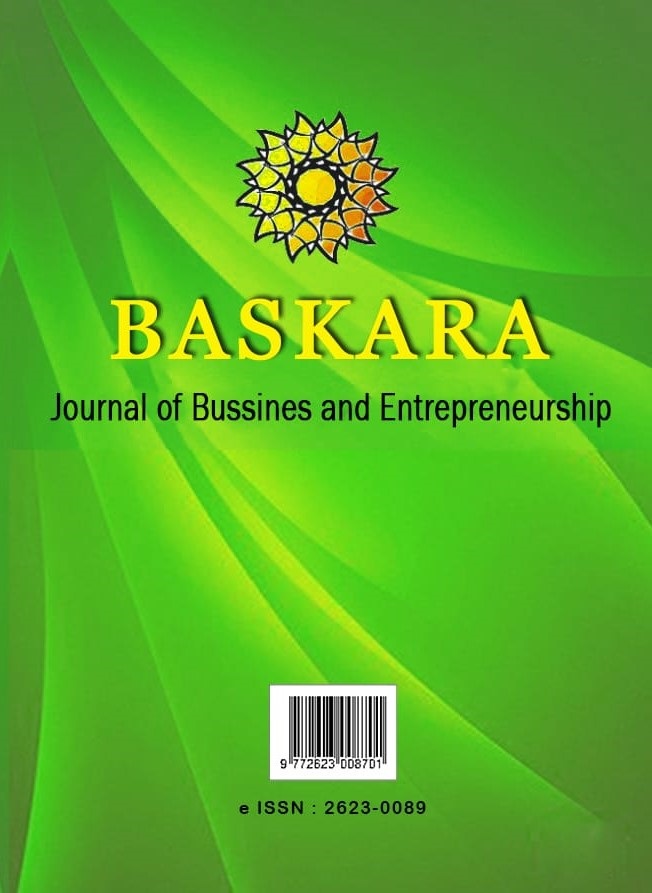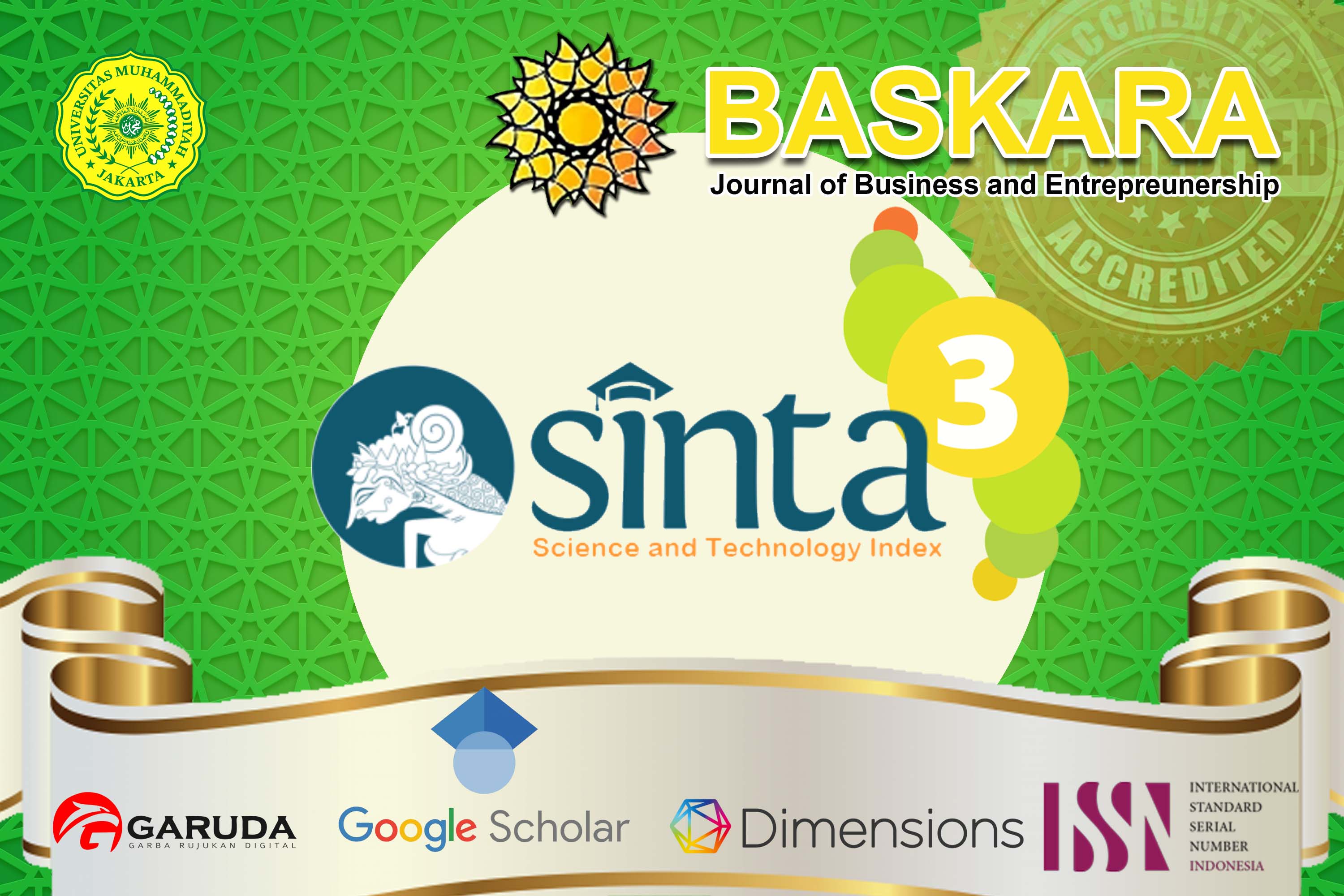Is there a Conflict of Interest in Indonesia’s SOE Investment Decision?
DOI:
https://doi.org/10.54268/baskara.v6i2.19201Kata Kunci:
State-Owned Enterprise, Investment Decision, Conflict of InterestAbstrak
In financial management, the Director of State-Owned Enterprises (SOEs) in Indonesia synergizes with the Ministry of SOE to make investment decisions. One of the most common types of investment in SOEs is the purchase of shares in private companies. Through buying shares, SOEs can expand their business lines and project bigger profits. However, it is often found that the decision to purchase private company shares is made by SOEs due to a conflict of interest. This paper aims to determine the level of involvement of conflicts of interest in the decisions of SOEs in Indonesia to invest in the purchase of shares of private companies. Due to data limitations, the authors used a qualitative technique with an explanatory case study to meet the research aims. The analysis tested of 14 Indonesian SOEs' investment decisions when investing in the purchase of shares in private companies during the 2013–2022 period. The findings show allegations of conflicts of interest in several share investment decisions made by SOEs in Indonesia. This conflict of interest can occur because of a family relationship between the Board of Directors of SOEs and the management of private companies. In addition, there is also a political-party relationship between the parties involved. These findings can help several parties, including SOE and the Ministry of SOE, better understand the limits of investment that can be made. In the long run, the Ministry of SOE, as the supervisor of SOEs, can establish an early warning system to determine whether or not the investments made are appropriate. Most of the previous research only examined the effects of a company's investment and its impacts. It explores the company's stock price valuation process. No research has been found that specifically discusses SOE investment in Indonesia in private company shares.Referensi
Alkostar, Artidjo. 2013. “Penerapan Undang-Undang Tindak Pidana Pencucian Uang Dalam Hubungannya Dengan Predicate Crimes.” Masalah - Masalah Hukum
Direktorat Litbang KPK, 2018. Konflik Kepentingan: Konsep dan Penanganan. Komisi Pemberantasan Korupsi.
Firmansyah, R., 2018. Tinjauan Yuridis Pengaturan Tentang Aparatur Sipil Negara (ASN) Yang Merangkap Jabatan Sebagai Komisaris Atau Dewan Pengawas Di BUMN. Doctoral dissertation: Universitas Brawijaya.
Hidayat, R. (2010). Keputusan Investasi Dan Financial Constraints: Studi Empiris Pada Bursa Efek Indonesia, Buletin Ekonomi Moneter dan Perbankan.
Husnan, S. (1996). Dasar-dasar Teori Portofolio dan Analisis Sekuritas. Edisi Ketiga. Penerbit UPP AMPYKPN. Yogyakarta.
KPK. (2009). Konflik kepentingan: panduan penanganan konflik kepentingan bagi penyelenggara negara.
KPPU. (2017). Pendapat KPPU No 27/2017.
Republik Indonesia, 2003. Undang-undang Nomor 19 Tahun 2003 tentang Badan Usaha Milik Negara.
Republik Indonesia, 2009. Undang-undang Nomor 25 Tahun 2009 tentang Pelayanan Publik.
Republik Indonesia, 2014. Undang-undang Nomor 23 Tahun 2014 tentang Pemerintahan Daerah.
Republik Indonesia, 2014. Undang-undang Nomor 30 Tahun 2014 tentang Administrasi Pemerintahan.
Setiawan, M., 2018. PENGATURAN APARATUR SIPIL NEGARA ESELON I YANG MERANGKAP JABATAN SEBAGAI KOMISARIS DI BUMN. Fakultas Hukum Universitas Udayana.
Tenribali, M., 2017. Rangkap Jabatan Berpotensi Korupsi. https://acch.kpk.go.id/id/artikel/amatan/rangkap-jabatan-berpotensi-korupsi. Anti-Corruption Clearing House. Diakses 16 September 2020 pukul 19.20.
Wahyuni, T., 2017. Rangkap jabatan: batas antara hukum dan etika dalam penyelenggaraan pemerintahan. Policy Paper. Pusat Kajian Dan Pendidikan Dan Pelatihan Aparatur III LAN
##submission.downloads##
Diterbitkan
Terbitan
Bagian
Lisensi
In order for Baskara: Journal of Business and Entrepreneurship to publish and disseminate research articles, we need publishing rights (transfered from author(s) to publisher). This is determined by a publishing agreement between the Author(s) and Baskara Journal. This agreement deals with the transfer or license of the copyright of publishing to Baskara: Journal of Business and Entrepreneurship, while Authors still retain significant rights to use and share their own published articles. Baskara : Journal of Business and Entrepreneurship supports the need for authors to share, disseminate and maximize the impact of their research and these rights, in any databases.
As a journal Author, you have rights for a large range of uses of your article, including use by your employing institute or company. These Author rights can be exercised without the need to obtain specific permission. Authors publishing in Baskara : Journal of Business and Entrepreneurship have wide rights to use their works for teaching and scholarly purposes without needing to seek permission, including:
- use for classroom teaching by Author or Author's institution and presentation at a meeting or conference and distributing copies to attendees;
- use for internal training by author's company;
- distribution to colleagues for their reseearch use;
- use in a subsequent compilation of the author's works;
- inclusion in a thesis or dissertation;
- reuse of portions or extracts from the article in other works (with full acknowledgement of final article);
- preparation of derivative works (other than commercial purposes) (with full acknowledgement of final article);
- voluntary posting on open web sites operated by author or author’s institution for scholarly purposes.
Copyright Transfer Agreement for Publishing (Publishing Right)
The Authors who submit manuscript has to understand that if accepted for publication, mean that all copyright and publishing right of the article shall be assigned/transferred to Baskara: Journal of Business and Entrepreneurship as assigned publisher.
- CC BY-NC: This license allows reusers to distribute, remix, adapt, and build upon the material in any medium or format for noncommercial purposes only, and only so long as attribution is given to the creator.
It includes the following elements:
BY ![]() – Credit must be given to the creator
– Credit must be given to the creator
NC ![]() – Only noncommercial uses of the work are permitted
– Only noncommercial uses of the work are permitted
Baskara (C) Copyright (2022):
BASKARA: Journal of Business and Entrepreneurship by https://jurnal.umj.ac.id/index.php/baskara
is licensed under a Creative Commons Attribution-NonCommercial 4.0 International License








